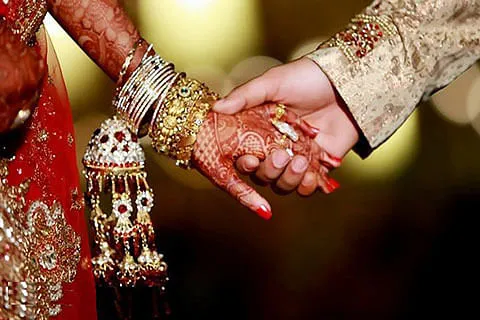BY SAN’NA FIRDOUS
In the captivating region of Kashmir, where the breathtaking beauty of nature enchants and tales of wonder abound, a fascinating social construct intertwines marriage prospects with government employment.
It is widely believed that individuals fortunate enough to hold coveted government jobs possess a golden ticket to finding suitable partners and a life of abundance.
Conversely, those employed in the private sector often face unjust scrutiny, with their ambition and financial stability called into question. This prevailing cultural belief poses a remarkable challenge for young men without government positions.
As a researcher, it is crucial to shed light on these deeply entrenched notions and advocate for a society where marriage transcends occupational status, drawing from the wisdom of Islamic principles and the value of individual character.
The association between government jobs and marriage prospects in Kashmir has created an environment where a person’s worth is primarily judged based on their employment status.
This narrow mindset fails to appreciate the diverse skills, talents, and contributions that individuals outside the public sector bring to a marriage. It is unjust to dismiss the aspirations, hard work, and untapped potential of those working in the private sector or pursuing entrepreneurial endeavours.
Marriage, as an institution, should be founded on shared values, mutual understanding, and compatibility, rather than the occupational label of a prospective partner.
It is essential to recognize and celebrate the economic and social diversity within marriages. By moving beyond the fixation on government jobs, Kashmiri society can embrace the richness that emerges from the fusion of experiences, perspectives, and talents from diverse professional backgrounds.
The Islamic faith offers a valuable framework for reimagining marriage. Islamic teachings emphasize that a successful union is rooted in shared values such as piety, honesty, kindness, and compassion.
Material possessions and occupational status should not overshadow these fundamental aspects of an individual’s character. By refocusing on these teachings, individuals in Kashmir can form relationships based on meaningful connections, shared values, and genuine compatibility.
Challenging cultural norms necessitates the collective efforts of families, community leaders, and influential figures. They must become catalysts for change, illuminating a path where individual character, personal growth, and shared values prevail over occupational status.
Public awareness campaigns, community dialogues, and educational initiatives play a vital role in dismantling existing stereotypes and fostering an inclusive and equitable vision of marriage.
True progress lies in embracing equality and recognizing that a fulfilling marriage can be built on a foundation of love, respect, and shared goals, irrespective of employment status. It is time to redefine success, breaking free from conventional measures of prosperity.
Society should encourage and support individuals in pursuing their passions and dreams, irrespective of whether they lead to government jobs or not. This inclusive approach will create a society where marriage is based on the intrinsic worth of individuals, transcending superficial labels.
The prevailing notion that government jobs are a prerequisite for marriage prospects in Kashmir hampers social progress and perpetuates unfair stereotypes. It is imperative to highlight the importance of shifting the focus from occupational status to Islamic values and individual character when considering potential partners for marriage.
Embracing diversity, challenging cultural norms, and fostering an environment of equality will empower Kashmiri society to forge connections based on shared values, aspirations, and personal growth, ultimately laying the foundation for stronger and more fulfilling marriages.
By reevaluating marriage norms and embracing a more comprehensive understanding of personal worth, Kashmiri society can move toward a future where love, respect, and compatibility become the true pillars of lasting partnerships.
This shift requires a collective commitment to challenging conventional beliefs and nurturing an environment where individuals are valued for their character and shared values rather than their occupational status.
Through embracing diversity, promoting equality, and fostering dialogue, we can create a society that celebrates the richness that arises from the blending of experiences, talents, and perspectives, resulting in stronger, more fulfilling marriages in Kashmir.
Disclaimer: The views and opinions expressed in this article are the personal opinions of the author.
The facts, analysis, assumptions and perspective appearing in the article do not reflect the views of GK.






